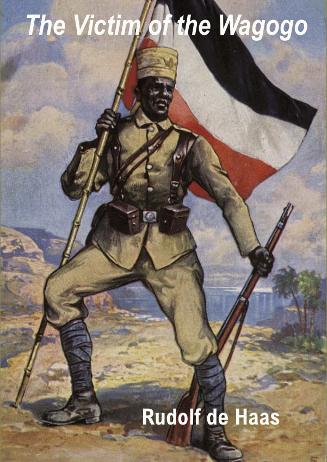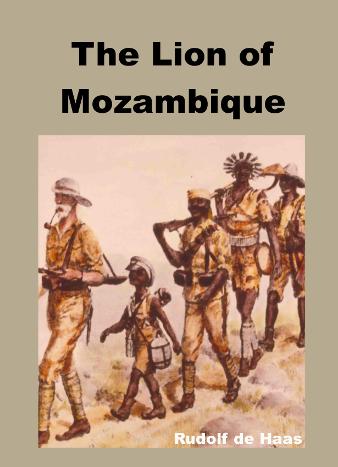Fünftes Kapitel
war – was
waren – were
immer – always
wieder – again
das Geld – money
geben – give
der Tisch – table
der Abend – evening
Heute Abend spricht die Mutter mit Marie.
Marie: „Was hast du heute gemacht?“
Mutter: „Ich bin heute in die Stadt gegangen.“
Marie: „Das ist schön.“
Mutter: „Ja, ich habe eingekauft.“
Marie: „Was hast du gekauft?“
Mutter: „Ich habe Brot gekauft. Dann habe ich ein Eis gekauft. Ich habe das Eis gegessen. Dann habe ich neue Schuhe gekauft.“
Frau Schmidt geht immer gerne in die Stadt. Sie kauft immer gerne ein. Heute ist sie in die Stadt gegangen. Sie hat Brot, ein Eis und neue Schuhe gekauft. Sie hat das Brot und die Schuhe nach Hause getragen. Hat sie das Eis nach Hause getragen? Nein, sie hat es in der Stadt gegessen. Frau Schmidt war heute sehr glücklich.
Waren die Kinder heute glücklich? Ja, sie waren glücklich. Was haben sie gemacht?
Peter hat mit seinen Autos gespielt. Marie hat Bäume, Blumen und Autos aus dem Fenster gesehen.
Dann sind die Kinder in die Küche gegangen. Sie haben Brot gegessen und Wasser getrunken.
Und was hat Herr Schmidt gemacht?
Er war im Garten. Er hat die Sonne gesehen und die Vögel gehört. Er war gerne im Garten. Er war sehr glücklich im Garten. Geht Herr Schmidt immer in den Garten? Nein, nicht immer.
Was hat Frau Schmidt am Abend gemacht?
Sie ist nach Hause gegangen. Sie hat die Schuhe auf den Boden gestellt und sie hat das Brot auf den Tisch gelegt. Sie hat ihren Kindern Brot gegeben. Die beiden Kinder waren sehr glücklich. Sie hat an ihre neuen Schuhe gedacht und war glücklich. Dann hat sie mit ihrem Mann gesprochen.
Herr Schmidt hat die neuen Schuhe gesehen. Er hat nicht an die neuen Schuhe gedacht. Er hat an das Geld gedacht. Er war nicht glücklich.
Hat Frau Schmidt an das Geld gedacht? Nein, sie hat an ihre neuen Schuhe gedacht.
Haben die Kinder an das Geld gedacht? Nein, sie haben an das Brot gedacht. Sie haben das Brot gegessen.
Haben die Eltern Brot gegessen? Nein, sie haben das Brot nicht gegessen und sie haben das Wasser nicht getrunken. Die Mutter hat an ihre neuen Schuhe gedacht und der Vater hat an das Geld gedacht.
brauchen – need
bekommen – get
für – for
Stück – piece
noch – still; another
alle – all
Was will Frau Schmidt? Sie braucht neue Schuhe. Sie will neue Schuhe kaufen. Heute ist sie einkaufen gegangen und sie hat neue Schuhe gekauft.
Was will Herr Schmidt? Er will im Garten sein. Heute war er im Garten. Er hat die Blumen und Bäume gesehen und er hat die Vögel gehört.
Was wollen die Kinder? Die Kinder wollen spielen, essen und trinken. Heute haben sie gespielt, gegessen und getrunken.
Und was will Rex? Der Hund will mit dem Ball spielen und schlafen. Heute hat er gespielt und geschlafen. Hat er im Bett geschlafen? Nein, er ist nicht im Bett gelegen, er hat auf dem Boden geschlafen.
Was hat die Mutter heute Abend gesagt?
„Ich habe Brot für euch.“
Was hat sie die Kinder gefragt?
„Wollt ihr ein Stück Brot haben?“
Was haben die Kinder gesagt?
„Ja, wir wollen Brot essen. Gib uns bitte das Brot.“
bitte – please
Gibt die Mutter ihnen Brot? Ja, sie gibt Marie ein Stück Brot und Peter ein Stück Brot. Sie hat den Kindern Brot gegeben.
|
ich gebe |
wir geben |
|
du gibst |
ihr gebt |
|
er, sie, es gibt |
sie geben |
Peter hat das Stück Brot gegessen. Was hat er dann gesagt?
„Gib mir bitte noch ein Stück Brot.“
Seine Mutter hat ihm noch ein Stück Brot gegeben.
Was haben sie heute alle gemacht?
Rex hat mit dem Ball gespielt. Er ist in das Haus gegangen und er hat geschlafen.
Der Vater hat Bäume gesehen und er hat Vögel gehört. Er hat mit seiner Frau gesprochen.
Die Mutter ist einkaufen gegangen. Sie hat Brot und Schuhe gekauft. Sie hat ihren Kindern Brot gegeben.
Die Kinder haben mit dem Hund gespielt. Sie haben von ihrer Mutter Brot bekommen. Sie haben Brot gegessen und sie haben Wasser getrunken.
Wo sind sie jetzt alle? Sie sind alle in ihrem Haus. Sie sind zuhause.
|
ich bin zuhause |
I am at home |
Wo waren sie?
Frau Schmidt war in der Stadt.
Herr Schmidt war im Garten.
Die beiden Kinder und der Hund waren im Haus.
An was haben sie alle gedacht?
Frau Schmidt hat an ihre neuen Schuhe gedacht.
Herr Schmidt hat an sein Geld gedacht.
Die Kinder haben an das Brot gedacht.
Der Hund hat an den Ball gedacht.
als – when
Der Bruder und die Schwester waren heute sehr glücklich. Die Mutter war glücklich in der Stadt, weil sie eingekauft hat. Der Vater war glücklich im Garten. Er war nicht glücklich als er die neuen Schuhe seiner Frau gesehen hat. Seine Frau war nicht glücklich als sie mit ihm am Abend gesprochen hat.
Fifth Chapter
|
ich war |
wir waren |
|
du warst |
ihr wart |
|
er, sie, es war |
sie waren |
This evening mother is talking with Marie.
Marie: “What did you do today?”
Mother: “Today I went into town.”
Marie: “That’s nice.”
Mother: “Yes, I went shopping.”
Marie: “What did you buy?”
Mother: “I bought bread. Then I bought an ice cream. I ate the ice cream. Then I bought new shoes.
Mrs. Schmidt always likes going into town. She always likes going shopping. Today she went into town. She bought bread, an ice cream and new shoes. She carried the bread and the shoes home. Did she carry the ice cream home? No, she ate it in town. Mrs. Schmidt was very happy today.
Were the children happy today? Yes, they were happy. What did they do?
Peter played with his cars. Marie saw trees, flowers and cars from the window.
Then the children went into the kitchen. They ate bread and drank water.
And what did Mr. Schmidt do?
He was in the garden. He saw the sun and heard the birds. He liked being in the garden. He was very happy in the garden. Does Mr. Schmidt always go into the garden? No, not always.
What did Mrs. Schmidt do in the evening?
She went home. She put the shoes on the floor and she put the bread on the table. She gave her children some bread. The two children were very happy. She thought about her new shoes and was very happy. Then she talked with her husband.
Mr. Schmidt saw the new shoes. He didn’t think about the new shoes. He thought about the money. He wasn’t happy.
Did Mrs. Schmidt think about the money? No, she thought about her new shoes.
Did the children think about money? No, they were thinking about the bread. They ate the bread.
Did the parents eat any bread? No, they didn’t eat bread and they didn’t drink any water. Mother thought about her new shoes and father thought about the money.
|
ich brauche |
wir brauchen |
|
du brauchst |
ihr braucht |
|
er, sie, es braucht |
sie brauchen |
What does Mrs. Schmidt want? She needs new shoes. She wants to buy new shoes. Today she went shopping and she bought new shoes.
What does Mr. Schmidt want? He wants to be in the garden. Today he was in the garden. He saw the flowers and the trees and he heard the birds.
What do the children want? The children want to play, eat and drink. Today they played, ate and drank.
And what does Rex want? The dog wants to play with the ball and sleep. Today he played and slept. Did he sleep in bed? No, he didn’t lie in bed, he slept on the floor.
What did mother say this evening?
“I have bread for you.”
What did she ask the children?
“Do you want to have a piece of bread?”
What did the children say?
“Yes, we want to eat bread. Please give us the bread.”
Does the mother give them any bread? Yes, she gives Marie a piece of bread and Peter a piece of bread. She gave the children some bread.
|
ich bekomme |
wir bekommen |
|
du bekommst |
ihr bekommt |
|
er, sie, es bekommt |
sie bekommen |
Peter ate the piece of bread. What did he say then?
“Please give me another piece of bread.”
His mother gave him another piece of bread.
What did they all do today?
Rex played with the ball. He went into the house and slept.
Father saw trees and heard birds. He talked with his wife.
Mother went shopping. She bought bread and shoes. She gave her children some bread.
The children played with the dog. They got bread from their mother. They ate the bread and drank some water.
Where are they all now? They are all in their house. They are at home.
|
ich gehe nach Hause |
I am going home |
Where were they?
Mrs. Schmidt was in town.
Mr. Schmidt was in the garden.
The two children and the dog were in the house.
What were they all thinking about?
Mrs. Schmidt was thinking about her new shoes.
Mr. Schmidt was thinking about his money.
The children were thinking about the bread.
The dog was thinking about the ball.
The brother and the sister were very happy today. Mother was happy in town because she went shopping. Father was happy in the garden. He wasn’t happy when he saw his wife’s new shoes. His wife wasn’t happy when she talked with him in the evening.

